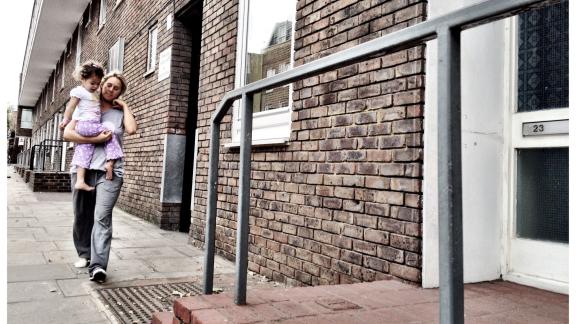Briefing: Current challenges facing the health and social care system in Wales

Introduction
This briefing has been developed in preparation for the debate on Wednesday 11th January on the current challenges facing the health and social care system in Wales, and opportunities for future service transformation.
The NHS in Wales is currently dealing with the most pressure it’s ever experienced, with red (immediately life-threatening) calls to 999 the highest on record, around 1,800 people medically fit for discharge in hospitals across Wales, and high levels of flu and other winter viruses which are affecting both patients and staff. The impact of industrial action has added further pressure on the system. The service is also grappling with longer-term issues such as climate change and health inequalities, with the latter being exacerbated by the current cost-of-living crisis.
Immediate pressures have an impact on the ability of the health and care service to plan in the long-term and a streamlined direction is required, underpinned by a long-term vision for the system and a long-term strategic workforce plan. Long-term and sustained investment is also needed to transform social care.
Welsh NHS organisations remain committed to transformation and improvement of the care it provides. This briefing provides additional information on some of the actions organisations are taking to address challenges facing the system.
Social care
Social care has a crucial role to play in care pathways by enabling faster, safer hospital discharges and keeping people well for longer outside of hospital. The last two years have exposed deep cracks in the social care system and have intensified structural vulnerabilities, with significant consequences for those requiring social care and their families.
Our briefing, ‘“It’s not just a crisis, it’s a national emergency”: Addressing the challenges in social care’, presented the results of a survey of our members regarding the impact of social care on the NHS. Many of the 50+ leaders surveyed said care pressures are driving urgent care demand, with a lack of social care capacity having an impact on their ability to tackle the elective care backlog. 100 per cent of NHS leaders agreed there is a crisis in the social care workforce, with a subsequent impact on patient care and safety. Action is needed now.
The social care sector requires appropriate resource and a sustainable workforce, with pay parity with the NHS. The work of the National Care Service Expert Group and consideration of a national care service does provide an opportunity to address issues in the sector and improve system integration.
Health inequalities and cost-of-living
Health inequalities – unfair and avoidable differences in health and access to healthcare across the population, and between different groups within society – have long been an issue, but have been exacerbated by the COVID-19 pandemic and the rising cost-of-living. The cost-of-living crisis is likely to increase health inequalities across communities, leading to a rise in poverty and ill health, putting more people out of work and placing a greater strain on the NHS, social care, housing organisations and the third sector.
The NHS alone does not have all the levers to reduce these inequalities, which is why we need to shift the focus from public health initiatives delivered through the NHS and local authorities to addressing factors such as poor housing, transport and food quality. As highlighted in the Welsh NHS Confederation Health and Wellbeing Alliance report, ‘Mind the gap: what’s stopping change?’, addressing the factors that cause ill health in the first place should be a central focus for the UK Government, Welsh Government and local government – a whole a cross-government and public service approach to inequalities is needed.
While the current crisis will have serious consequences for inequalities and population health, it also has major financial implications for NHS organisations. There has already been a substantial increase in NHS spending as a result of increased energy and fuel costs, especially considering the old NHS estate.
Workforce
Staff are also being hit hard by the cost-of-living crisis, alongside rising demand for healthcare services, creating increased pressure at work and impacting on staff wellbeing. Ongoing industrial action is placing further pressure on services, however NHS leaders understand that it has not been an easy decision for staff and is not only informed by the current cost-of-living crisis, but deep-rooted issues around working conditions. The impact of staff morale on retention needs to be considered as staff struggle with moral injury due to the impact of pressures on the care they are able to deliver.
While the investment this year in training new NHS staff is welcomed, without the provision of a long-term, sustainable funding plan to recruit and train both NHS and social care staff, these issues will continue for years to come.
Finance
The NHS currently faces its greatest financial challenge, which is likely to have an impact on the speed of recovery following the pandemic. We understand the current budget limitations on the Welsh and UK Governments and believe both the government and the NHS will need to work together to create more innovative solutions across a streamlined set of priorities, which effectively balance short-term need with long-term vision.
Capital investment is also key to continuing delivery of high-quality, safe health services, as well as meeting longer-term goals to integrate care. A multi-year capital funding settlement for the entire NHS would drive productivity and support reducing the backlog, ensure the safety of the NHS estate, embed positive pandemic-era changes, and truly make inroads in reducing inequalities by transforming models of care.
Creating a sustainable system will also require a cross-sector effort to build healthier and more prosperous communities, reducing demand well into the future. To this end, population health must be a consideration across all government department budgets.
Transformation and opportunities
The pressures facing the NHS and social care are not only currently severe, but they are often complex and long-term in nature, requiring new and integrated approaches. NHS organisations are currently taking action to incorporate transformational ways of working. In our report ‘Bringing Care Closer to Home’, we highlighted a number of initiatives that are helping people stay well in their communities and aim to reduce future demand.
Investment will be required to aid transformation, for example in digital, and our briefing ‘Investing in the NHS: Priorities for future government budgets’ details where investment will make the most difference in creating a sustainable service.
However, funding will only form part of the solution and we need to consider the opportunities to reshape the public’s relationship with the NHS and support people to look after their own health, which is the subject of our briefing ‘Reshaping the relationship between the public and the NHS’. Changing the way we communicate with the public will also enable them to understand how they can help reduce the pressures facing the NHS and the need to radically re-think how services are delivered in the long term. Politicians and Governments have a key role and responsibility to support this.
Conclusion
Whilst current pressures across the health and care system are intense and draw resource away from long-term priorities, there are clear opportunities for transformation, which can be supported through appropriate investment and public engagement.



